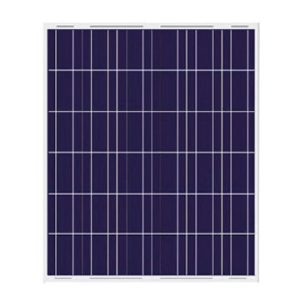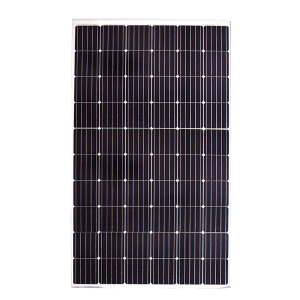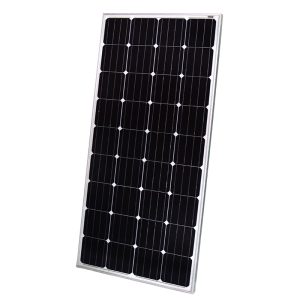Introduction
As we move towards a sustainable future, solar energy has become an increasingly popular option for individuals and businesses looking to reduce their carbon footprint and save on energy costs. However, to get the most out of your solar panels, it’s essential to have the right equipment, including a high-quality solar charge controller. In this article, we’ll discuss the benefits of using a 500 watt solar charge controller and how it can help you maximize the power generated by your solar panels.
What is a Solar Charge Controller?
Before we dive into the specifics of a 500 watt solar charge controller, let’s first define what a solar charge controller is and why you need one. A solar charge controller is a device that regulates the voltage and current from your solar panels to your battery or power supply. It prevents overcharging, undercharging, and other issues that can damage your batteries or reduce their lifespan.
There are two main types of solar charge controllers: PWM (pulse-width modulation) and MPPT (maximum power point tracking). PWM controllers are the more basic option, while MPPT controllers are more sophisticated and efficient. While both types of controllers have their benefits, we’ll focus on MPPT controllers in this article.
What is a 500 Watt Solar Charge Controller?
A 500 watt solar charge controller is a type of MPPT solar charge controller that can handle up to 500 watts of solar panel power. This type of controller is ideal for medium-sized solar arrays and can accommodate up to 24 volts of charging.
One of the main benefits of a 500 watt solar charge controller is that it can handle a larger amount of power than lower wattage controllers. This means that you can connect more solar panels to your system to generate more power, which can be especially useful if you have limited roof space or live in an area with less sunlight.
Benefits of a 500 Watt Solar Charge Controller
Using a 500 watt solar charge controller has several benefits for homeowners and businesses, including:
1. Maximizing Solar Panel Output
A 500 watt solar charge controller enables more efficient solar panel output, meaning that you can generate more power from your solar panels. This is because the controller can track the maximum power point of your solar panels in real-time and adjust the voltage and current accordingly.
2. Protecting Your Batteries
A 500 watt solar charge controller can help protect your batteries from overcharging, which can cause damage and reduce their lifespan. This is because the controller regulates the voltage and current from the solar panels to ensure that the batteries are charged at the optimum level.
3. Saving Money
Using a 500 watt solar charge controller can also help you save money in the long run. By maximizing the power output of your solar panels and protecting your batteries, you can reduce your reliance on grid electricity and lower your energy bills.
How to Choose a 500 Watt Solar Charge Controller
When choosing a 500 watt solar charge controller, there are several factors to consider, including:
1. Amperage
The amperage rating of a solar charge controller indicates how much current it can handle. A 500 watt solar charge controller should be able to handle at least 25 amps of current.
2. Voltage
The voltage of a solar charge controller should match the voltage of your solar panel array. A 500 watt solar charge controller can handle up to 24 volts of charging.
3. Brand Reputation
When choosing a solar charge controller, it’s essential to select a reputable brand with a track record of producing high-quality products. Look for brands that have good customer reviews, warranties, and technical support.
Conclusion
Using a 500 watt solar charge controller can help you maximize the power generated by your solar panels while protecting your batteries and saving you money in the long run. When choosing a solar charge controller, consider factors such as amperage, voltage, and brand reputation to ensure that you select the right controller for your system. With the right equipment and maintenance, solar energy can be a reliable and sustainable source of power for years to come.
Here are three popular FAQs with answers for a 500 Watt Solar Charge Controller:
Q: What is a 500 Watt Solar Charge Controller used for?
A: A 500 Watt Solar Charge Controller is an electrical device used to regulate the power flow from solar panels to batteries. It ensures that the battery is not overcharged or discharged, which can damage the battery. It also helps to extend the life of the battery and protect it from overvoltage, overcurrent, and short circuits.
Q: How many solar panels can a 500 Watt Solar Charge Controller handle?
A: The number of solar panels a 500 Watt Solar Charge Controller can handle depends on the voltage and amperage of the panels. As a general rule, a 500 Watt Solar Charge Controller can handle up to 24 volts and 20 amps of solar panels. Thus, it can handle up to four 100 Watt solar panels or two 250 Watt solar panels, provided the combined output does not exceed the controller’s maximum capacity.
Q: Can I use a 500 Watt Solar Charge Controller for a 12V battery system?
A: Yes, you can use a 500 Watt Solar Charge Controller with a 12V battery system. However, you must ensure that the charge controller is compatible with the battery’s voltage and capacity. Some 500 Watt Solar Charge Controllers are designed to work with 12V, 24V, and 48V battery systems, and they come with adjustable settings to match the battery’s specifications. It’s essential to read the manufacturer’s specifications to ensure compatibility.



